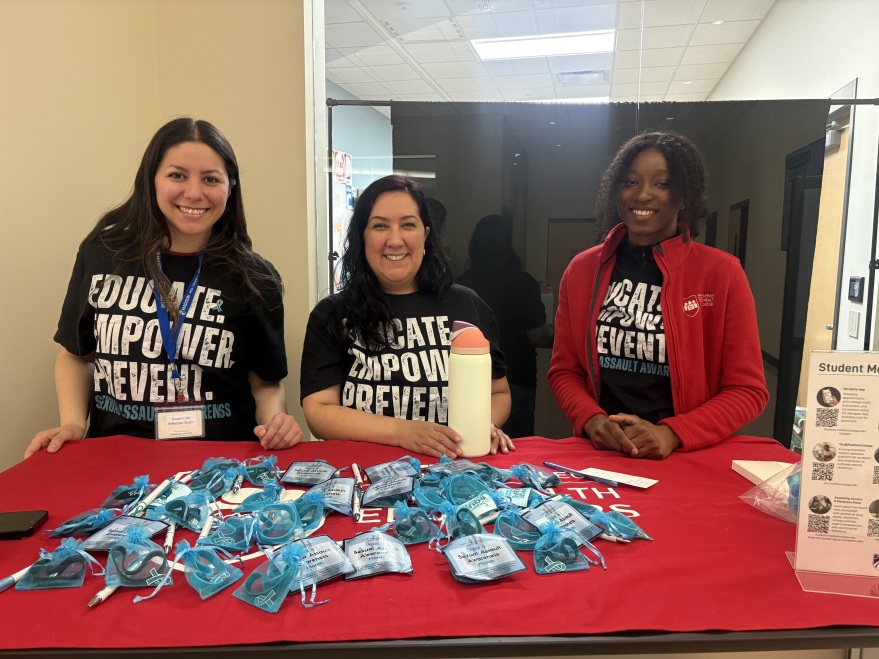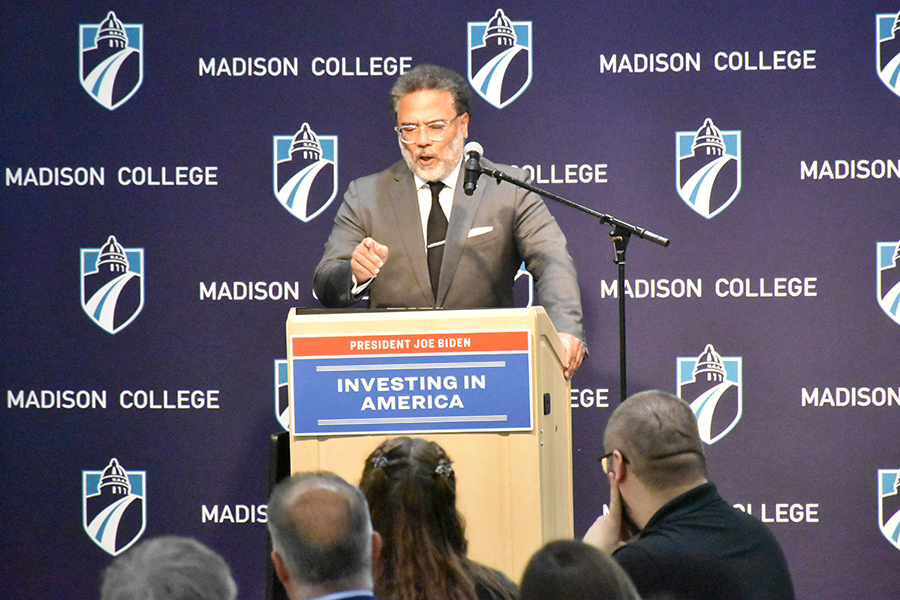Earlier this month, Madison College hosted a group of visiting officials from Washington D.C. National Cyber Director Harry Coker Jr. and Domestic Policy Advisor Neera Tanden arrived at Madison College’s Truax Campus. During their visit, they toured the college’s cybersecurity and IT classrooms before engaging in a listening session with students and alumni from these programs.
Coker’s visit comes a year after the July 2023 release of Biden-Harris Administration’s National Cyber Workforce and Education Strategy, which aims at increasing the number of cyber professionals to meet the workforces’ demands.
Coker stressed its importance when he said, “Let me be clear, having a strong cyber workforce isn’t only a matter of national security, it’s also a matter of economic prosperity and technological innovation.”
As there are approximately 500,000 open cyber security jobs in the United States, with over 1,000 in Madison, Coker applauded the work the city is doing to create a variety of pathways into the cybersecurity field, taking special note to call the use of an advisory board “insightful.”
Investments in cyber security education and in cyber infrastructure of Wisconsin are coming from multiple areas. According to Coker, the Biden-Harris administration has provided investments for registered apprenticeships in cyber fields. The ICS Village, a non-profit organization to advance security awareness and education of industrial control systems (ICS) and The SysAdmin, Audit, Network and Security ( SANS) Institute is also committed to exploring partnerships with schools in the Wisconsin Technical College System (WTCS). Their goal is to bring in 12 students into their registered apprenticeship program in 2025. The EC council, an organization that provides certifications for IT and cybersecurity, pledged $15 million in scholarships with hopes of reaching 50,000 students.
Coker outlined some cyber infrastructure investments made in Wisconsin by the federal government. One billion dollars is going to build the necessary infrastructure and provide the skills and equipment so that high-speed internet is more accessible to Wisconsinites, with $14.9 million to lower the costs of high-speed internet in underserved areas. Additionally, $14.2 million is being allocated to digital inclusion and building cyber infrastructure of Wisconsin, with $7.6 million given to the state to aid the state in cybersecurity planning activities.
National Cyber Director visits Madison College
Kodiak Koessl, Staff Writer
August 26, 2024
National Cyber Director Harry Coker Jr. speaks at an event at Madison College’s Truax Campus in early August.
Story continues below advertisement



























